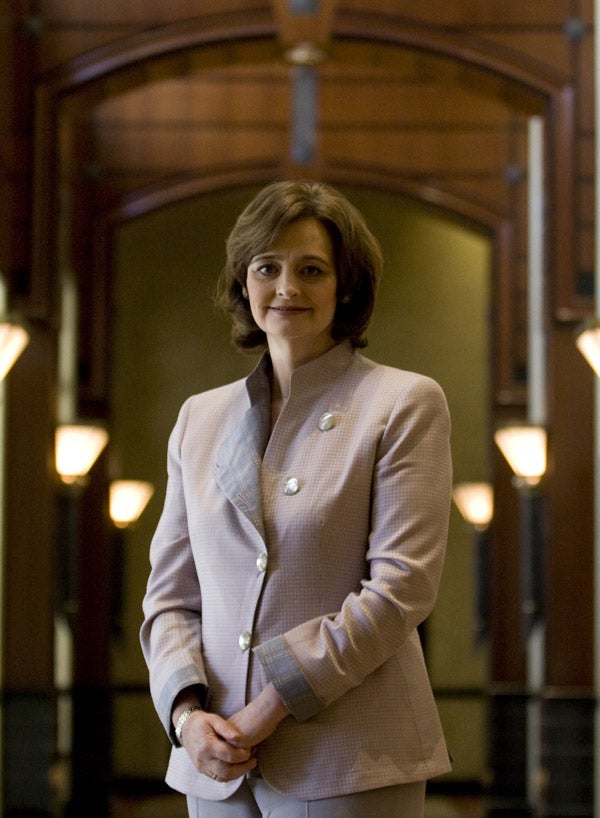Passed/Failed: An education in the life of Cherie Blair, QC
'I wasn't at all the best-behaved girl'

Cherie Blair, 55, Queen's Counsel, part-time judge and co-founder of the radical Matrix Chambers. She is the wife of Tony Blair and daughter of the actor Tony Booth. Her autobiography, Speaking For Myself, is out now in paperback. Next Thursday she will present one of the Women of the Future awards at London Marriott Hotel Grosvenor Square.
I knew Mr Smerdon already; his son was the first boy who ever kissed me. With him as our teacher the last year at St Edmund's Catholic Primary, in Crosby at the northern end of Liverpool, was a magical time. We must have done all the subjects but I can't remember many formal lessons. He was a former fighter pilot and would devote hours to recounting his experiences.
I was very aware, from my mother and grandmother, that I should go to a good school – and Seafield Grammar was the good school for Catholic girls.
You really were separated from the rest of your primary school class who went to secondary modern; you became posh because you went to the grammar school. It was a good school with a lot of emphasis on developing morally.
My social life revolved round the Young Christian Students; the best chance a good Catholic girl had of meeting a good Catholic boy from St Mary's, the school that faced ours across Liverpool Road. We would discuss the [liberalising] Second Vatican Council. I developed the type of Catholicism I have today.
I was in the school plays and had the lead in Murder In The Cathedral. Two things that the school did in helping with my legal career were drama and public speaking, which gave me confidence in thinking on my feet. I was bad at sport but did the commentary for sports displays. Rather than reveal my two left feet in a gym display, I would announce: "Here is Mary with her forward roll." (I got a great kick later out of opening the sporting block and unveiling the plaque that said: "Cherie Blair, QC and distinguished old girl", though I wasn't so sure about the "old".)
I got As in history, geography and economics and I got prizes in those subjects. I wasn't by any means the best-behaved girl and they didn't give prizes for having the most late marks. Meriel Taaffe, the mother of my boyfriend, said: "You're good at debating and drama. Have you thought about becoming a lawyer?" The LSE offered me a place.
They found me a "suitable" place in Notting Hill run by Sacred Heart nuns with a 10 o'clock curfew and a dormitory with other girls. In my first act of advocacy, I managed to persuade the LSE to let me share a room in Passfield Hall and I lived in Central London for three years. Though I used to walk past Merchant Taylors' [independent school] on the way to Seafield, this was the first time I had come across public school people. I was always aware that some students had cars and went out to expensive restaurants.
At the LSE they taught law as a social science, with labour law and human rights law; they saw the subject in terms of its impact on political and economic life. This was the kind of work I saw myself doing and I got a first.
I did my bar finals at Lincoln's Inn, coming top. ("Blair, A." was nestling in the Third Class section.) We were one of the first years to experiment with practical training, visiting the different courts, but this was still an adjunct to the academic training. Only 16 per cent of women were called to the Bar. This was not deliberate prejudice, just the culture of the times; you didn't find many women accountants and doctors. Last year it was 50 per cent.
Join our commenting forum
Join thought-provoking conversations, follow other Independent readers and see their replies
Comments
Bookmark popover
Removed from bookmarks